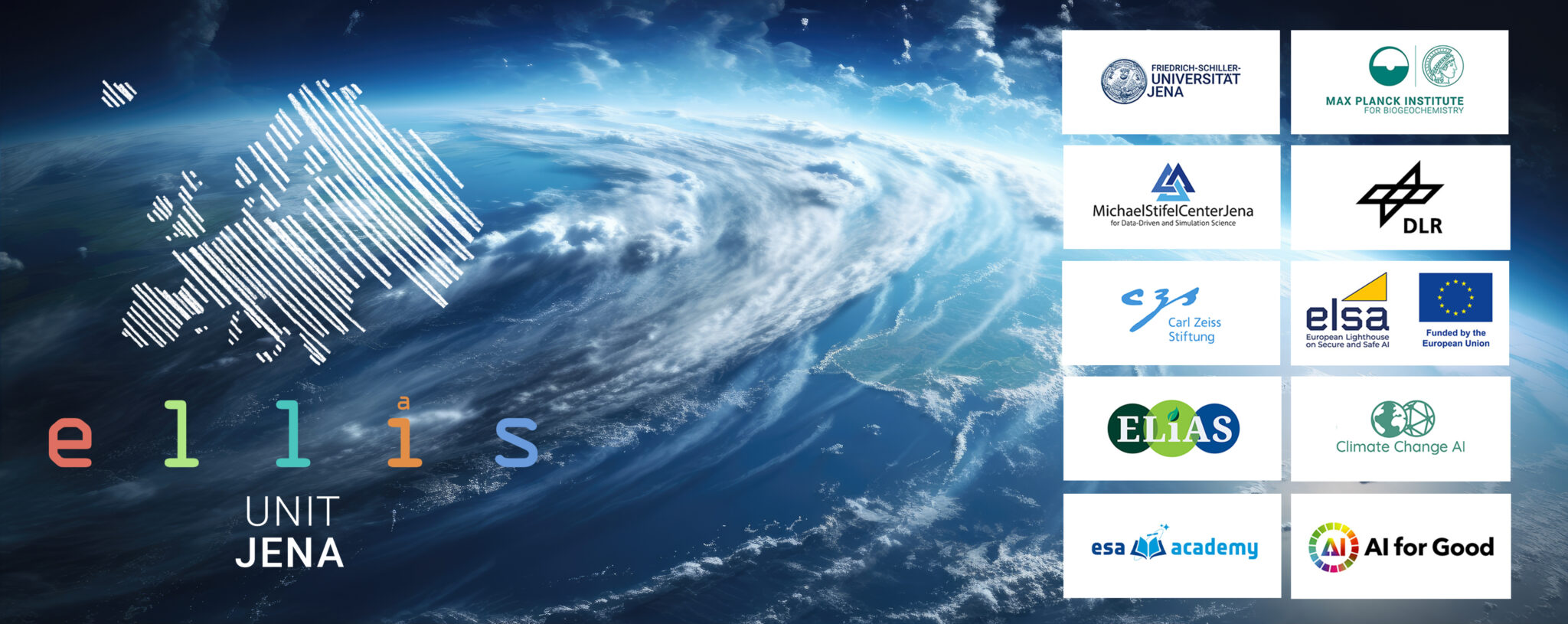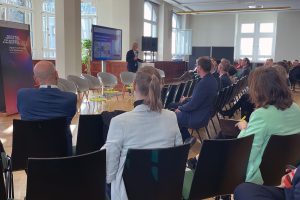In collaboration with the Free State of Thuringia under the Digital Summit, Jena organized the „Marketplace of Digital Possibilities“ on November 20 and 21, 2023. The event featured various exhibitors and events at different locations across the city. The ELLIS unit Jena was represented through a booth in the main auditorium at the Ernst-Abbe-Hochschule Jena and at the Campus of the Friedrich Schiller University.
Led by the ELLIS unit Jena, we are excited to participate in the main program of the Digital Summit 2023. Our selection resulted from a rigorous competition, and we take pride in being chosen to organize one of the approximately 40 contributions.
Artificial Intelligence for Climate Change Resilience and Early Warning
November 20, 11:45 am – 12:35 pm
This slot at the main program of the Digital Summit 2023, organized by the ELLIS unit Jena, aimed to explore and discuss the opportunities arising from the past paradigm shift in artificial intelligence (AI) towards generative, science-guided, and interactive AI. The focus was on developing predictive early warning and decision support systems in Germany to address climate and environmental changes and their socially relevant risks. The ultimate goal was to enhance foresight and evidence-based action options for climate and biodiversity crises. Given the high relevance of AI, digitization, and climate change, the event emphasized practical solutions and the utilization of AI in detecting and adapting to climate risks, such as extremes and their impacts. The integration of AI across the entire early warning chain, from observation to predictions, warnings, and decisions, was explored. The event also highlighted the potential of AI as a crucial factor in building resilience against climate and biodiversity crises, as well as adapting to climate extremes and systemic risks.
In the context of the Digital Summit 2023, the event aligned with the focus on resilience through digital transformation. It emphasized that sustainable development must consider resilience to shocks, such as climate extremes and pandemics (Reichstein et al. 2021, Nature, https://doi.org/10.1038/d41586-021-00927-x). Early warning systems, recognized by the United Nations as „Early Warnings for all,“ (https://www.undrr.org/early-warnings-for-all) played a central role in this context. The event aimed to support a resilient and forward-looking digital transformation, discussing innovative approaches for improved early warning systems. The focus was on exploring how AI could be leveraged in these areas to develop effective early warning systems beyond purely weather-based approaches, with the potential to prevent disasters.






































